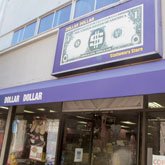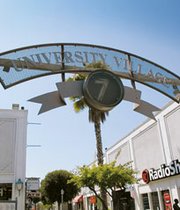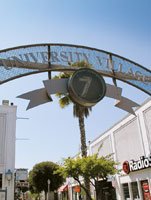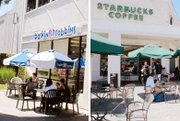USC Proposes to Develop Mall Near Downtown L.A.
More than 38,000 students take classes at the University of Southern California, but outside of the university’s bookstore, there are few on-campus choices for shopping and buying clothes. But a recent development might pave the way for mall-style boutique shopping at USC.
Earlier this month, the Los Angeles City Planning Commission approved a massive redevelopment plan for portions of the university’s sprawling 300-acre campus, located a couple of miles southwest of downtown Los Angeles. The Los Angeles City Council will hold a hearing on the proposed redevelopment before USC may start construction. However, no council hearing had been scheduled as of press time.
The plan proposes to overhaul more than 5 million square feet of USC with new student and faculty housing, a 150-bed hotel and conference center, and new shops and services on campus and in the surrounding community.
Included in the plans will be the redevelopment of the half-vacant University Village Shopping Center, located across the street from USC’s University Park Campus at the corner of Hoover Street and Jefferson Boulevard.
USC owns the shopping center, which will be renamed The Village at USC. It currently houses a Starbucks, an independent movie theater that screens first-run movies, an independent supermarket and service-oriented neighborhood businesses.
Sources familiar with the project predicted fashion retail could play a significant role in the revamped center. They requested anonymity because they are not authorized to talk to the press. But they did say there is a desire for fast-fashion retail along with specialty retail.
Only a handful of universities develop shopping centers, according to the International Council of Shopping Centers. Stanford University significantly remodeled the Stanford Shopping Center in Palo Alto, Calif. In 2003, the university sold the retail center to Simon Property Group for $333 million.
With USC students reportedly spending more than $503 million in Los Angeles County annually, retailers stand to gain by building stores in USC’s neighborhood. However, there has been no specialty retail in the area in recent memory. Most of the neighborhood’s current apparel retail is mostly composed of independent shops serving the low-income area around USC.
For many students living at USC without a car, the only choice has been to shop e-commerce or browse pop-up shops temporarily set up on campus, said Melissa Kuo, a recent graduate in communication and marketing and past president of the university’s Fashion Industry Association. For those with a car, a fashion shopping trip typically means driving through traffic-clogged freeways to malls such as the Beverly Center, The Grove, Westfield Century City, and even the Third Street Promenade in Santa Monica, which is more than 14 miles away from USC.
“I really think the renovations will bring a lot of students to [University Village],” Kuo said.
“I’ve wondered why they didn’t do it sooner.”
However, the university neighborhood also has the reputation of being a high-crime area. The university is still reeling from the homicides of USC graduate students Ming Qu and Wing Yu in April. The Los Angeles Police Department arrested two men May 18 for the homicides, which were blamed on a robbery. The neighborhood’s reputation has long constricted retail opportunities, said Francisco Mejia, a mechanic at L.A. Bicycles Sales & Repairs, one of the busier shops at University Village.
“When night comes, everyone leaves here,” Mejia said of the mall.
Security problems would stymie future retail, said Fraser Ross, founder of the prominent boutique retail chain Kitson, which is headquartered in West Los Angeles.
“You have to have a safe environment with retail,” Ross said, “or you won’t get the best staff.”
To improve public safety, USC will have to boost security patrols around the area, said Ken Hira, Southern California state director for ICSC. He also serves as senior vice president for Los Angeles–based real estate consulting group Kosmont Companies.
Increased public safety can be guaranteed if security cameras are installed around the area, and if just more people walk around the area.
“The more eyes you have looking on an area, the less trouble you experience,” Hira said. The remodeled shopping center must stress open, well-lit spaces so there will be no hiding places for people planning or fleeing from committing a crime.
He also called the redevelopment a smart move because it will bring more amenities and services to USC students. Ross also saw opportunity at the proposed redevelopment.
“Students going to USC are pretty affluent,” Ross said. “There’s going to be a customer for any business near a college town. But you’re not going to sell dressy fashions. It’s going to be casual.”

























